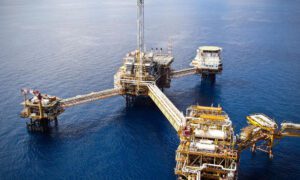


Government playing politics with inflation
With frantic efforts by the President Bola Tinubu administration to stabilise the economy, the inflation rate has continued to rise on a monthly basis without drastic measures.
Following the trends of inflation report by the National Bureau of Statistics (NBS) one begins to feel that the government has been rather inactive in managing the inflation situation. We have been applying only the orthodox approach which is all about increasing monetary interest rates. As much as we have increased the monetary policy rates by 5.5 percent in the last 12 months, inflation has climbed rather steadily to 28.92 percent today, with a slight dip some months back, followed by steady rises.
The Central Bank of Nigeria (CBN) has raised the monetary policy rate by 400 basis points to a record 22.75 percent from 18.5 percent. Members after the two-day meeting in Abuja increased the asymmetric corridor to +100 basis points /-700 basis points (Previously: +100 basis points /-300 basis points) while they also increased the Credit Reserve Ratio (CRR) to 45.0 per cent from 32.5 percent; and retain liquidity rate at 30 percent.
The CBN Governor, Olayemi Cardoso disclosed this at the 293rd Meeting of the Monetary Policy Committee in Abuja and said the increase of the anchor rate was to moderate the country’s soaring inflation rate, which stood at 29.90 per cent in January.
The decision of the MPC also coincided with the announcement by the CBN of the sale of foreign exchange to Bureau de Change (BDC) operators in the country at N1,301 per USD, according to a Tuesday memo signed by Hassan Mahmud, the director of the Trade and Exchange Department at the apex bank.
The resumption of the sale of forex to BDCs is happening more than two years after the former CBN governor, Godwin Emefiele, stopped the sales to BDC operators in that segment of the forex market.
According to the memo, the move is part of CBN’s “strategic steps” to increase liquidity and strengthen the naira against “manipulators”.
However, the new aggressive stance of CBN in raising the anchor interest rate, which determines what the banks charge on facilities to customers, is being queried by Prof. Uche Uwaleke of the Department of Banking & Finance, Nasarawa State University, who said jerking up the MPR by 400 basis points in one fell swoop is simply overkill, suggesting that 200 basis points would have been better since they have another opportunity to meet next month to review impact
Precisely, a few weeks ago the NBS disclosed that the inflation rate in Nigeria gained 7.58 percentage points in 2023 when it increased to 28.92 percent in December 2023 from 21.34 percent reported in December 2022.
The Consumer Price Index (CPI) reported by NBS showed that 28.92 percent in December 2023 is relative to the November 2023 headline inflation rate which was 28.20 per cent.
According to NBS, “Looking at the movement, the December 2023 headline inflation rate showed an increase of 0.72 per cent points when compared to the November 2023 headline inflation rate.
“On a year-on-year basis, the headline inflation rate was 7.58 percentage points higher compared to the rate recorded in December 2022, which was 21.34 per cent.
“This shows that the headline inflation rate (year-on-year basis) increased in December 2023 when compared to the same month in the preceding year (i.e., December 2022).
“Furthermore, on a month-on-month basis, the headline inflation rate in December 2023 was 2.29 percent, which was 0.20 percent higher than the rate recorded in November 2023 (2.09 percent).
“This means that in December 2023, the rate of increase in the average price level is more than the rate of increase in the average price level in November 2023.”
NBS stated that the percentage change in the average CPI for the 12-month ending December 2023 over the average of the CPI for the previous twelve-month period was 24.66 percent, showing a 5.81 percent increase compared to 18.85 percent recorded in December 2022.
On urban inflation, the NBS report stated that “On a year-on-year basis, in December 2023, the Urban inflation rate was 31.00 percent, this was 8.98 percentage points higher compared to the 22.01 percent recorded in December 2022.
“On a month-on-month basis, the Urban inflation rate was 2.42 percent in December 2023, this was 0.19 percent points higher compared to November 2023 (2.23 percent).
“The corresponding 12-month average for the Urban inflation rate was 26.22 percent in December 2023. This was 6.83 percentage points higher compared to the 19.38 percent reported in December 2022.”
For rural Inflation, it said, “The Rural inflation rate in December 2023 was 27.10 percent on a year-on-year basis; this was 6.38 percent higher compared to the 20.72 percent recorded in December 2022. On a month-on-month basis, the Rural inflation rate in December 2023 was 2.17 percent, up by 0.18percentage points compared to November 2023 (1.99 per cent).
“The corresponding 12-month average for the Rural inflation rate in December 2023 was 23.25 per cent. This was 4.91per cent higher compared to the 18.34 per cent recorded in December 202.”
Unfortunately, the Whereas 2 percent – 4 percent inflation is considered to be healthy inflation (for matured economies), and we may run up to say 6 percent – 8 percent in our economy without any sense of panic, the Central Bank of Nigeria has set its inflation target at anything below double-digit. Let’s call that 9 percent. We are thus 13 percent above this target.
How else can we force down inflation? And what latitude can we entertain especially because high rates of inflation also usually come with high GDP growth rates? The contention for me is that we should target much higher rates of growth in our GDP than the 2 percent -3 percent that we are doing and projected to do presently. It’s actually quite depressing when one sees such projections. Can we accommodate lower double-digit inflation as a price for much higher GDP growth rates? The new administration has gone all out to promise a GDP growth rate of between 8 percent to 10 percent. How can we achieve this without letting inflation run away any further?
I believe it is achievable though but that will require us discombobulating where our 22.22 percent inflation is coming from. First off, growing the economy much faster simply means getting rid of inefficiencies, ensuring that people actually get productive for whatever salaries they are paid, improving capacity utilisation in industries, getting companies to grow, encouraging new productive ventures, and generating considerable productive buzz in an economy.
We can look at other economies that have achieved this to be able to get an idea of what it takes. Many such countries – like China, India, and even other African nations which have grown at about 8 percent for some years, such as Cote D’Ivoire, Senegal, Egypt, and Ethiopia – saw real investments in infrastructure, evidencing healthy growth rates. A focused leadership, resolute in enforcing a level of discipline, punishing and rewarding promptly to signal its direction, and with adequate performance monitoring of all sectors and its targets can put Nigeria on this same track.
The Central Bank of Nigeria, through its monetary policy committee (MPC), has adopted an orthodox approach permanently by continually increasing interest rates. Perhaps that’s the best the CBN can do, or else it is accused of extra-monetarism. The textbooks say once general interest rates are increased, inflation will slow down because people are better incentivised to save money, and to borrow less, thus money in circulation reduces and inflation follows suit. If we consider where Nigeria’s inflation is coming from – with a major portion stemming from food inflation – we will most likely conclude that we have cost-push inflation. This means that sellers are passing on the higher cost of bringing goods to the market.
However, if we are honest, we will find that Nigeria’s inflation is a multi-variable phenomenon — cost-push, illegal money in the hands of many people, bad data as a result of a large informal economy, inflation from our import-intensive economy, and price gouging by those who can exploit consumers. We should understand that Nigeria’s economy is a very loose system where people get away with all sorts. So, is there any direct intervention that can be made in the agricultural sector to slow down food inflation? That will require a careful and deliberate walk-through of the entire value chain. It is not enough to throw money at the problem by way of intervention funds, a lot of which goes to waste.
A multi-sectoral approach is required, with strong executive leadership. We have no excuse for food inflation to be so high on a month-on-month basis. If we could intervene and begin to work down food and other inflation, this will have an immediate effect on our overall headline inflation numbers. We cannot afford to leave every sector to the shenanigans of players in such a growing economy. Perhaps direct government interventions to assuage the agonies of our farmers and transporters will help to tame general inflation.
Policies to increase the competitiveness and efficiency of the economy, putting downward pressure on long-term costs – At the end of the day, competitiveness and better regulation of sectors within the economy, are what guarantee the strength of an economy. Deregulation of markets is not the application of laissez-faire policies where anyone does what they like, but better, more transparent, and more scientific policies and regulatory approaches. This will then ensure that sellers in an economy think twice before playing games. Overall, too, the leaders in an economy have to be able to reduce the rat race by which people chase more money and more advantages for themselves no matter whose ox is gored. In most of Europe, people have since gotten to that level.
A higher rate of income tax could reduce spending, demand, and inflationary pressures. This is another approach to curbing inflation. Whereas Nigeria may not raise taxes at this point, what we propose we do is get serious about enforcing government revenue. The CBN is increasing interest rates in a desperate but thus far futile bid to slow down inflation, whereas the fiscal sector merely wrings its fingers at our low revenue-to-GDP ratio. The former minister of finance must have given up since no support came from a disinterested president.
There is a large room for tax compliance in Nigeria. And we are not talking about just taxes, but every revenue accruable to the government – rents, rates, duties, fees, fines, levies, and what have you. We cannot run such a slack society and expect glory to abound. Also, there is no basis for reducing government expenditure at this point. Our people’s standard of living is still so low, such that the government must have a mindset to spend more – on education, health, security, infrastructure, electricity, and rail networks. However, the efficiency of this spending is what matters.
Are we getting value for money? Is the spending getting to the people? Are we empowering Nigerians? If viewed this way, we will not be powering up unproductive inflation, but rather growing the economy (GDP). The real problem we have had in Nigeria is low growth and very high inflation. Growth must ramp up, while inflation goes down. As difficult as it may look, this is the only way forward that can be achieved through sincerity and deep thinking.
Ultimately, the government at the center should collaborate with the state governments to put to the lasting menace of insecurity so all farmers have access to their farming activities and transport their food produce into the market. Infrastructural challenge is another nightmare that must be given urgent attention to boost economic activities in the country.


